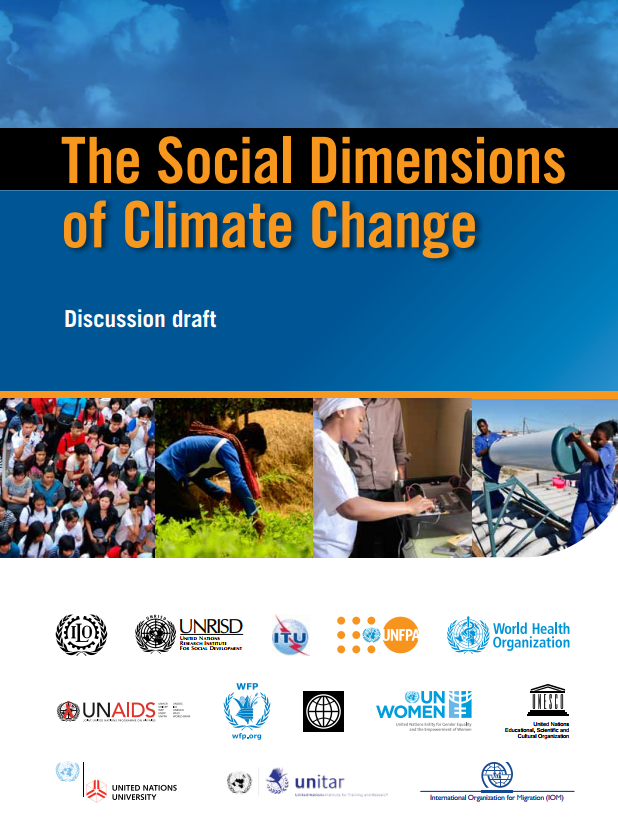
The social dimensions of climate change
Publication details
Number of pages: 48
Publication date: 2011
Languages: English
Overview
The United Nations Framework Convention on Climate Change (UNFCCC) states that “Parties should protect the climate system for the benefit of present and future generations of humankind, on the basis of equity and in accordance with their common but differentiated responsibilities and respective capabilities.” It moreover entrusts Parties to take climate change considerations into account, to the extent feasible, in their relevant social, economic and environmental policies and actions (1). The current climate change discourse – including the way mitigation and adaptation measures are designed and appraised – tends to emphasize environmental, economic or technological inputs and costs. The social dimensions of climate change are not well understood or addressed. As a result, current policy responses may not fully address the negative impacts nor do they take full advantage of potential opportunities to reach a number of sustainable development goals.
In this context, a number of UN agencies (FAO, ILO, IOM, ITU, OHCHR, UNAIDS, UNDESA, UNDP, UNESCO, UNFPA, UN-HABITAT, UNICEF, UNITAR, UNISDR, UNRISD, UNU, UN Women, WB, WFP and WHO) have come together to share perspectives and articulate a number of key messages to better inform policy discussions and ensure that the social dimensions of climate change are adequately reflected in global agendas. Social dimensions are approached in this paper as those that reflect the social, economic and behavioural aspects of the human condition as critical components of climate policies. The understanding of social dimensions of climate change has both an analytical and a normative thrust. It identifies the essentially social aspects of climate processes and, at the same time, builds on the principles of equity and social justice, especially for the most vulnerable people.
This paper addresses the social dimensions of climate change from a sustainable, equitable development perspective, understood as “an irreducible holistic concept where economic, social and environmental issues are interdependent dimensions that must be approached within a unified framework”, and where the overarching outcome is to fully promote human welfare and equal access to life-sustaining resources. The paper is not an academic review, nor a detailed assessment of the consequences of not addressing the social dimensions of climate change. The aim is rather to broaden and deepen policy-makers’ understanding of the benefits of addressing and incorporating the social dimensions of climate change into climate policies. In doing so, the paper identifies a number of knowledge gaps within the social, human and natural sciences that need to be filled in order to further strengthen policy responses.



